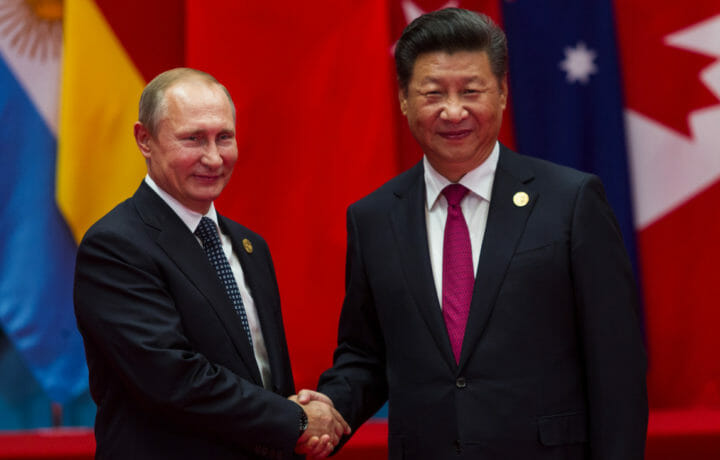The United States Space Force, the sixth and newest branch of the United States military, will be developing almost three-quarters of intelligence gathering just on China and Russia with about half of the total efforts directed to keep tabs on Beijing.
“From an intelligence perspective … about half of what we do is focused on China. About 25% of what we do is focused on Russia, and a lot of that has to do because of the current conflict [in Ukraine],” Maj. Gen. Gregory Gagnon, Space Force deputy chief of space operations for intelligence, told attendees at the Space Force Association earlier this month, Breaking Defense first reported.
Gagnon added that the remaining 25% will be focused on what he described as the “rest of the world.” That included the commercial sector, although the deputy chief of space operations for intelligence was quick to note that the U.S. Space Force isn’t spying on the commercial sector, rather it is to understand it from an intelligence perspective.
Focus on China and Russia
The focus on China and Russia is the result of U.S. Air Force Secretary Frank Kendall’s assessment that the two nations are Washington’s key peer adversaries – a fact that isn’t likely to change, especially as Beijing charges ahead with its space program.
“About three or four years ago, the … PRC was just getting to 400 satellites. Today, they’re about to punch through 800,” Gagnon warned.
Beijing reportedly put up almost 200 satellites just last year, with most of them being equipped with remote sensing intelligence, surveillance, and reconnaissance (ISR) capabilities. In addition, Russia announced in 2022 that it would prioritize its development of military satellites.
It was in April that John F. Plumb, assistant secretary of defense for space policy, also explained to U.S. lawmakers that China has already fielded ground-based counterspace weapons while it continues to seek new methods to hold U.S. satellites at risk. Beijing is also building a space architecture that could enable its military to execute long-range precision strikes.
Russia is also developing, testing, and fielding its own counterspace systems, including ground-based and space-based kinetic anti-satellite weapons.
“These are aimed at degrading and denying U.S. space-based services,” Plumb said during testimony to the House Armed Services Strategic Forces subcommittee hearing on national security space activities.
The Space Force as Part of the Intelligence Community
The U.S. Space Force is already playing a significant role within the United States Intelligence Community (IC). There are now more than 1,500 space intelligence professionals within the ranks of the Space Force, Gagnon explained.
The National Space Intelligence Center (NSIC), also known as Delta 18 under Space Operations Command, was stood up in June 2022, at Wright Patterson Air Force Base in Dayton, Ohio. It is the Space Force’s key intelligence operation. Its mission is to provide progressive, predictive, and pioneering intelligence to outwit, out-reach, and win in the space domain.
Communication is Still Critical
It was in February that the U.S. DoD also adopted a new set of rules for responsible space operations. One of the rules is openly communicating about U.S. military space activities to prevent any misunderstanding and miscalculations. A concern remains that the lack of transparency by other nations – especially China – could make it difficult to reduce such risks.
The DoD released the guidelines to provide “transparency about U.S. military space activities in order to reduce the risk of misunderstanding and miscalculation,” said the U.S. Space Command, and added. “We are not asking other nations to adopt internal DoD guidance.”
As Beijing may lack transparency about its activities in space, it may be up to the Space Force’s Delta 18 to help ensure that there isn’t such a misunderstanding or miscalculation.



